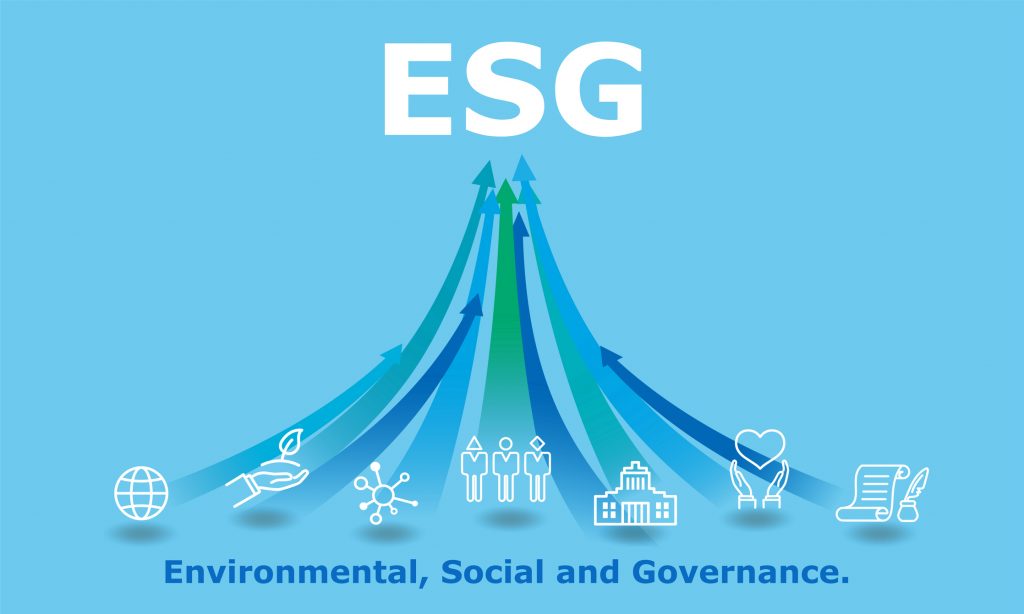880 W. Long Lake Road • Suite 225 •
Troy, Michigan 48098
• P: 248.269.1122 •
E: bianchipr@bianchipr.com

ESG (environmental, social, and governance) reporting is rapidly becoming the hottest trend for mobility, automotive and vehicle technology suppliers. We’ve all seen the headlines … read the articles … review the studies … and spoken to clients about this hot topic.
Interestingly, according to Forbes, just a decade ago, ESG investing was viewed as an outlier; something that interested a few select investors. Today, the practice is reshaping wealth management, as well as changing the way consumers are making purchases and the way top talent are choosing their employers.
As a company that focuses on mobility public relations, we wanted to provide the best possible counsel to our vehicle technology supplier clients about this increased interest in how ESG (and the related reporting) could … and perhaps should … be incorporated into their PR, stakeholder relations and marketing communications activities.
Our research showed there was scant ESG data and insight specific to the mobility supplier community.
So, we decided to do our own research, and to benchmark and identify best practices for ESG communications by top North American automotive suppliers. Why? Our initial research showed some compelling reasons:
ESG Expectations are Increasing
It’s no secret that ESG has become a big priority for many investors and is gaining momentum.
But it’s not just investors.
Most U.S. adults say they want to work for a company that places a priority on ESG practices, according to a recent survey from multi-national manufacturing and service companies network SK Group. SK Group surveyed 1,500 U.S. adults in May 2021 to gauge U.S. attitudes about corporate sustainability, a key component of ESG standards and practices being implemented and measured by organizations.
According to this article, the study revealed the current and future U.S. workforce wants companies to measure and report on their environmental impact. A commitment to sustainability is even more important for the younger generation and for those actively seeking new jobs, as well as making purchase decisions on these beliefs.
And it’s not only consumers who are increasing their ESG expectations. Today, not only are global automakers working diligently on their own ESG practices, they are also cascading the same kind of requirements down to their suppliers.
So, if you want to keep your automaker customers happy, win the support of top investors, and attract the best talent to help your company develop and produce the technologies that will enable the electric, autonomous, connected and shared vehicles of tomorrow amidst this intensely competitive talent market, your company needs to embrace solid ESG practices.
Customers, investors, employees and government regulators are all looking to work with companies that are committed to ESG and making the world a better place.
Our takeaway: ESG is becoming an expectation.
Automotive Companies are Just Getting Started with ESG
When it comes to ESG, the automotive industry is falling short, according to this article. Specifically, “despite a raft of automakers pledging future sustainability targets, just one-in-ten of them are meaningfully focused on sustainable production.”
That’s the data coming from business management specialist Capgemini Research in its recent Sustainable operations: A comprehensive guide for manufacturers report.
As another data point, the Q2 2021 OESA (Original Equipment Suppliers Association) Automotive Supplier Barometer focused on Supply Chain, Globalization, and Sustainability asserted that “formal sustainability plans have been adopted by 47% of the supply base, and an additional 22% are in the process of developing one. Plans are centered on carbon reduction, neutrality goals, and eco-friendly material usage and product production.”
The good news for the automotive industry is that there is lots of room for improvement
Our takeaway: there’s a great opportunity for PR and communications practitioners to have a seat at the ESG reporting table, providing support, counsel and strategic insight on how these companies’ evolving ESG efforts are conducted, communicated and shared with key audiences.
ESG Reports Lack Consistency, Transparency and Important Information
Another interesting fact from our research: ESG reporting lacks consistency, transparency and even validity.
This article, based on a study done by Bianchi PR’s PRGN agency partner in Germany, cometis, and the market research institute KOHORTEN, and other PRGN partners Currie Communications in Australia and Xenophon Strategies in Washington DC, discusses the “superficiality, lack of transparency and gaps” in ESG reporting overall.
Per the article, 81% of the reports are silent about how the company identified stakeholders, while 65% provide no information on sustainability targets and objectives that were unmet.
Consider this analysis that highlights the importance of some sort of consistency in ESG reporting, “This superficiality is so problematic because, on the one hand, the reports are not transparent for stakeholders and, on the other hand, they are also less comparable with those of other companies. Investors increasingly attach importance to the fact that their assets are not simply invested with profitable companies, but also contribute to sustainability. If there is only insufficient information available, how can investors decide which company deserves their funding?”
Our takeaway: this gap offers another huge opportunity to understand and help create some best practices for automotive supplier ESG reporting.
So, based on these factors, we began our research on the ESG reporting habits of the top 25 North America automotive suppliers.
We’ll discuss our findings in a series of subsequent blog posts that will look at number of ESG topics, including the terminology, what a typical automotive supplier ESG report looks like, the most common topics covered in these reports, formatting and imagery insights, the role of goals in ESG reporting and more.
Check back regularly to ensure you don’t miss any of these important insights.

Author: Adriana Van Duyn
Adriana is an account supervisor at Bianchi PR with 17 years of B2B PR experience representing clients across multiple industries.
You may also be interested in: